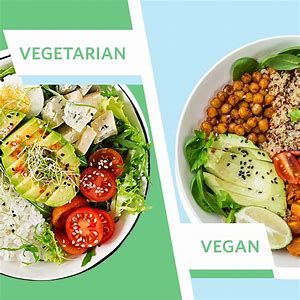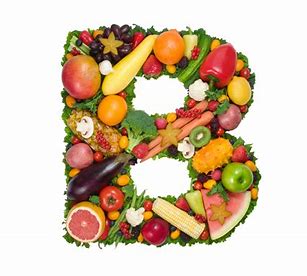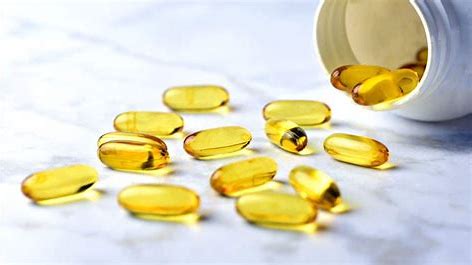Vegan options on every menu, vegan foods in every
supermarket, and most of us probably have at least one friend who’s a vegan.
Vegan eating is more popular than ever, but can you meet all your nutritional
needs if you avoid all animal foods?

Once considered fringe, vegan eating is one of the most
in-vogue dietary trends. About one per cent of the world’s population identify
as vegan, which means they don’t eat any foods of animal origin including meat,
fish, eggs and diary food. While this may seem a small number, it has been
increasing rapidly over the past few years.
Sales of meat-free and diary-free foods are booming, with
even fast food chains cashing in by offering vegan options. It’s predicted that
the global vegan food market will be worth US$24.3 billion by 2026.
Why are plants becoming so popular?
A Mintel survey in the U.K found health, weight management,
animal welfare and environmental concerns were the big motivators for people to
switch to vegan eating. There’s plenty of evidence that eating more plant foods
– vegetables, fruit, legumes, nuts, seeds and wholegrains – coupled with a
reduced consumption of animal foods, is good for our health, reducing the risk
of cardiovascular disease, diabetes and some cancers. But you don’t have to
become vegan to eat more plants. Along with full-time veganism, flexitarianism
– part-time vegetarianism or veganism – is also becoming more mainstream.
Eliminating all meat, fish, diary and eggs from your diet
will mean cutting out valuable sources of nutrients. So, if you’re following a
vegan diet, can you meet all your nutritional needs?
Yes, you can, says US vegan dietitian Brenda Davis, a leader
in the field of vegan nutrition. But you need to plan. One of the mistakes vegans
make, she says, is ignoring the nutrients of concern. You need to make sure
that the main nutrients found in foods you’re no longer eating – meat, fish,
diary and eggs – are being replaced by plant sources.
Clare Collins, professor of nutrition at the University of
Newcastle, agrees. She says vegans must pay strict attention to what they eat
and understand food better than the average omnivore or even vegetarian.
What are the nutrients you need to watch out for if you opt
for a vegan diet?
Vitamin B12

This is an incredibly important vitamin but one that’s only
available from animal foods such as meat, fish, diary and eggs, or in the form
of supplements. Trace amounts may be found in some plant foods such as
mushrooms that may be contaminated by soil or insects, but these are not
reliable sources for vegans, says Davis. “The only reliable sources for vegans
are supplements and fortified foods,” she says.
“You don’t want to end up with a B12 deficiency,” says
Professor Collins. B12 is vital for making DNA, fatty acids, red blood cells
and neurotransmitters – chemicals that pass signals around the brain.
While a deficiency may manifest first as vague symptoms like
light-headedness and tiredness, it can progress to mood changes like depression
and nerve problems like numbness, pain and loss of taste and smell.
Iron
Iron deficiency is the most common nutritional disorder in
the world. This essential mineral is best known for its role in transporting
oxygen around our bodies in red blood cells, so if you’re deficient you’re
going to feel tired and lethargic, lack the ability to concentrate, and have a
lowered immunity to any bug going around.
Plants do contain iron – it’s found in foods like legumes
and beans, seeds and dried fruit – but it’s in a form that isn’t as well
absorbed as the iron found in meat. This means vegans and vegetarians are more
at risk of deficiency if they are not careful with their diet. One simple way
to help your body absorb more plant iron is by including a source of vitamin C
with your meal. Vegetables like red capsicum and broccoli, and fruit such as
oranges, kiwis and strawberries all contain good amounts of vitamin C.
Professor Collins also recommends avoiding cups of tea
immediately after meals. “The tannins and the phytates in the tea actually
interfere with the absorption of the iron,” she says.
Calcium
Calcium is important for bone health, heart health, muscles
and nerves. Diary foods provide a rich source for omnivores so if you don’t
replace diary foods with calcium-rich plants, your body will ‘steal’ calcium
from your bones putting you at risk of osteoporosis (brittle, weak bones) later
in life. One important study, the EPIC-Oxford study, found that vegans who
consumed less than 525mg calcium per day had a 30 per cent increase in fracture
risk compared to non-vegetarians. Calcium-rich plant foods include tofu,
low-oxalate greens (such as broccoli, bok choy, and kale), calcium-fortified
non-diary drinks, almonds, sesame seeds (tahini), and figs.
Long chain omega 3 fats

Omega-3 fats are particularly important for the health of
your brain, eyes and cell membranes. The most well-known sources include fish
and seafood, which are rich in two types of omega 3 fats called EPA and DHA.
Plant foods typically only contain another type of omega 3
fat called alpha-linolenic acid (ALA) which our bodies must convert to EPA and
DHA. But this conversion process is quite inefficient, which means that you
must eat a good amount of ALA-rich foods to get enough omega-3s.
If you’re switching to a vegan diet, make sure you have
plenty of chia seeds, hemp seeds, walnuts, and linseeds (flaxseeds). You can
use chia seeds and ground linseeds as egg substitutes in baking. You may also
want to consider a supplement of algal oil, which contains EPA and DHA, particularly
if you’re pregnant or breastfeeding.
Note: If you’re following a vegan diet, it’s worth
mentioning it to your GP so they can check for any early sign of deficiencies,
particularly B12 and iron.